At Glowskinhub.com, we believe beauty isn’t just a look—it’s a feeling

Sleep Apnea, Sleep Deprivation, and Skin Health – Impact Of Disrupted Sleep
Introduction: When Sleep Disruption Shows on Your Skin
We often talk about Beauty sleep like it’s a fairytale. But it’s very real—your Skin does some of its most powerful repair work while you sleep. Unfortunately, for millions of people dealing with sleep apnea or chronic sleep deprivation, that overnight healing never fully happens. And the results? They literally show up on your face.
From dull, dehydrated Skin to dark circles, breakouts, and even premature aging, poor sleep has a domino effect on your Skin’s health and appearance. It’s not just about looking tired—it’s about your Skin not getting the chance to rebuild itself. Your body sees sleep as the perfect time to regulate hormones, balance hydration, boost blood flow, and produce collagen. Take that away, and the glow disappears.
In this guide, we’ll explore how disrupted sleep—especially due to conditions like sleep apnea—can wreak havoc on your Skin. Whether you’re struggling with restless nights or just not getting enough shuteye, we’ll break down the science and give you Skin-saving solutions to recover your radiance.
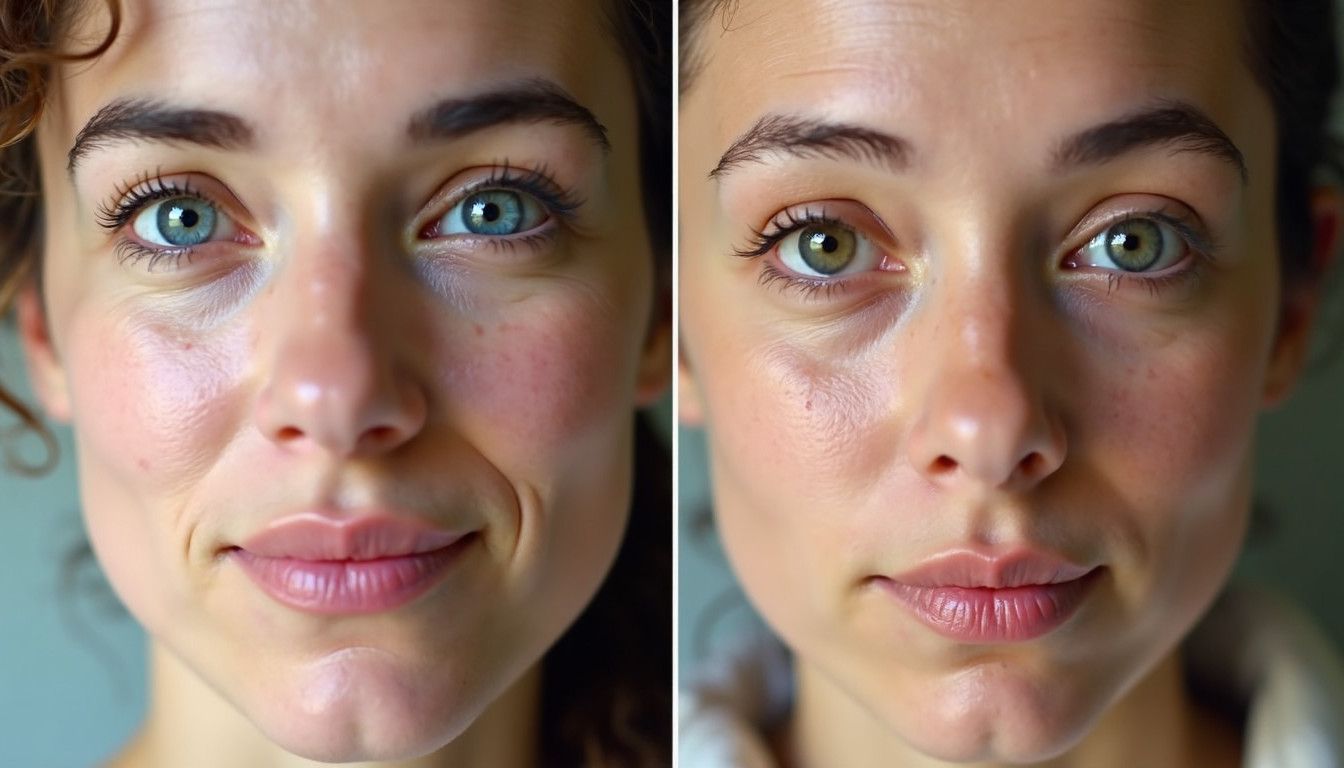
1. What Is Sleep Apnea and How It Affects Your Sleep Cycle
Sleep apnea is more than just snoring—it’s a medical condition where breathing repeatedly stops and starts during sleep. The most common type, obstructive sleep apnea (OSA), happens when the muscles at the back of your throat relax too much, blocking airflow. These pauses in breathing can happen dozens or even hundreds of times each night.
Every time your breathing stops, your brain jolts you awake just enough to reopen your airway. While you might not remember it happening, this constant sleep disruption keeps you from entering deep, restorative sleep stages, like REM and slow-wave sleep. These stages are crucial for Skin repair, hormone balance, and collagen production.
People with untreated sleep apnea often experience chronic fatigue, poor focus, mood swings, and yes—Skin issues. Without that nightly reset, your cortisol levels (the stress hormone) stay elevated, your circulation decreases, and your body misses out on detoxifying and repairing cells—including Skin cells.
The scary part? Sleep apnea often goes undiagnosed. If you’re waking up with a dry mouth, feeling unrested despite 7–8 hours in bed, or your partner notices loud snoring or pauses in breathing, it might be time to see a sleep specialist.

2. Skin Damage from Interrupted Sleep Cycles
When your sleep is constantly interrupted—whether by sleep apnea, insomnia, or late-night scrolling—your body can’t enter the deeper stages of sleep where real cellular repair happens. And when your body can’t heal, your Skin is one of the first places to show it.
1. Dehydration and Dullness
During deep sleep, your body boosts blood flow to the Skin and maintains optimal hydration balance. Poor sleep reduces this circulation, leaving your Skin looking pale, dry, and tired. You may even notice that your Skin feels tighter or flakier in the morning after a rough night.
2. Increased Cortisol Levels
Interrupted sleep raises cortisol, your stress hormone. Cortisol breaks down collagen—the protein that keeps Skin smooth and firm—and increases inflammation, which can trigger breakouts, rosacea, or eczema flares. It also disrupts your Skin barrier, leaving you more vulnerable to environmental damage.
3. Slower Regeneration
At night, your Skin goes into regeneration mode: repairing damaged cells, producing new Skin cells, and building collagen and elastin. When sleep is cut short or repeatedly disrupted, this repair process is significantly delayed, leading to fine lines, sagging, or a “rough” texture over time.
4. Puffy Eyes & Dark Circles
Interrupted sleep limits lymphatic drainage, which causes fluid buildup around your eyes. That means you wake up with puffiness or persistent dark circles, even if you’re getting 7–8 hours in bed.
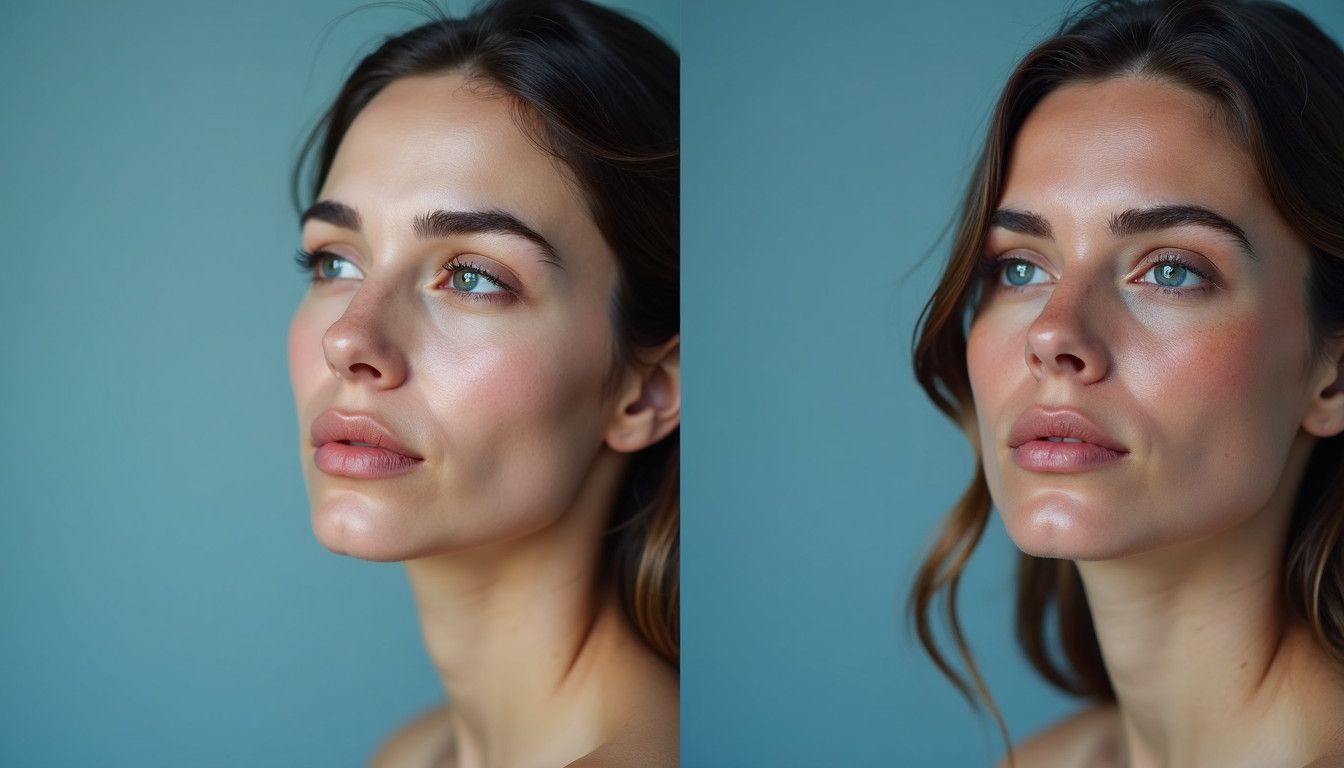
3. How Sleep Deprivation Impacts Skin Barrier and Aging
Your Skin barrier is your body’s first line of defense—it protects you from pollution, bacteria, UV rays, and water loss. But without enough rest, that barrier begins to weaken, and your Skin pays the price.
Weakened Skin Barrier Function
Sleep deprivation causes your Skin to lose its ability to retain moisture and block irritants. This often leads to dry, flaky, or itchy Skin, and makes you more sensitive to skincare products or environmental triggers like sun, smoke, and dust. The result? A dull, uncomfortable, and reactive complexion.
Accelerated Aging
During sleep, your Skin produces collagen and elastin—proteins responsible for keeping your Skin firm, bouncy, and wrinkle-free. When sleep is disrupted, this natural production slows, leading to fine lines, deeper wrinkles, and even loss of elasticity over time. Chronic lack of sleep has been directly linked to premature aging.
Oxidative Stress and Free Radicals
Poor sleep increases oxidative stress, a process where unstable molecules (free radicals) damage healthy Skin cells. Without proper rest, your Skin can’t fight these attackers efficiently. This leads to uneven Skin tone, hyperpigmentation, and increased sensitivity.
Inflammation and Redness
Lack of sleep raises inflammatory markers, which can worsen existing Skin issues like acne, eczema, or rosacea. It also slows down the healing process, so blemishes and irritation linger longer.
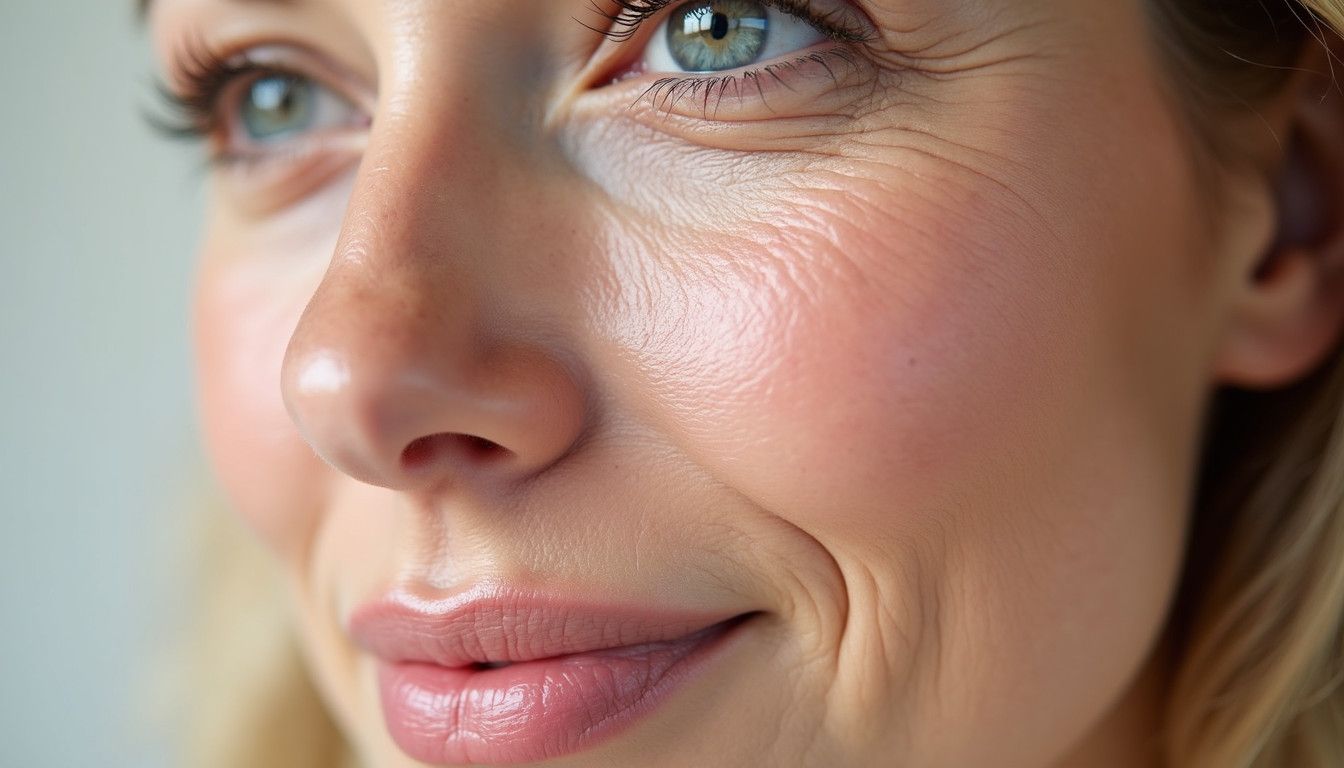
4. Sleep Apnea’s Effects on Skin Health
Sleep apnea is more than just loud snoring—it’s a serious sleep disorder that causes interrupted breathing throughout the night, often without the person even realizing it. These frequent pauses in oxygen can take a noticeable toll on your Skin over time.
Oxygen Deprivation and Dull Complexion
One of the biggest issues with sleep apnea is reduced oxygen supply to tissues, including the Skin. Oxygen is crucial for healthy cell turnover and collagen production. Without it, your Skin may appear dull, grayish, or lifeless. In the long run, this lack of oxygen can also contribute to uneven tone and rough texture.
Puffy Eyes and Dark Circles
Sleep apnea leads to poor-quality, fragmented sleep, which often results in puffiness, fluid retention, and stubborn dark circles around the eyes. Over time, these signs become more pronounced—even after a “full” night’s sleep—because your body isn’t reaching the restorative stages needed for proper repair.
Increased Inflammation and Sensitivity
Because sleep apnea triggers a stress response in the body, it increases inflammation levels. This can worsen acne, trigger flare-ups in rosacea or eczema, and generally leave your Skin more reactive and irritated.
Long-Term Collagen Loss
Repeated oxygen deprivation and fragmented sleep also slow down collagen synthesis, which weakens the Skin’s structural support. This contributes to premature aging, sagging, and fine lines, especially in the under-eye and cheek areas.

5. Improving Skin Through Better Sleep Hygiene
If you’re battling dull, dry, or breakout-prone Skin and suspect poor sleep is playing a role, it’s time to take your sleep hygiene seriously. Small changes in your nightly routine can dramatically improve both your sleep quality and the health of your Skin.
Create a Consistent Sleep Schedule
One of the most effective ways to support better sleep—and by extension, better Skin—is by going to bed and waking up at the same time every day, even on weekends. Your body thrives on rhythm, and consistency helps regulate melatonin production, which is essential for deep, restorative sleep that your Skin craves.
Wind Down with a Pre-Bed Ritual
Avoid screens at least 1 hour before bed. The blue light from phones and TVs suppresses melatonin. Instead, opt for relaxing rituals like reading, stretching, or taking a warm bath. These routines calm your nervous system and signal to your body that it’s time to rest—allowing Skin cells to enter repair mode.
Optimize Your Sleep Environment
Your room should be a cool, dark, and quiet sanctuary. Use blackout curtains, a white noise machine, and keep the temperature between 60–67°F (15–19°C). These conditions help you reach deeper sleep cycles, where Skin regeneration peaks.
Clean Pillowcases & Hydrated Skin
Always sleep on a clean pillowcase—preferably silk or satin—to reduce Skin irritation and bacteria transfer. Pair it with a good night cream or hydrating mask to lock in moisture as you sleep, preventing overnight dehydration.

6. Treatment Options for Sleep Apnea
If you suspect sleep apnea is interfering with your sleep—and your Skin—it’s important to know that effective treatments are available. Addressing sleep apnea doesn’t just improve your rest—it can drastically improve your Skin clarity, reduce puffiness, and slow signs of aging caused by chronic sleep deprivation.
cpap Therapy (Continuous Positive Airway Pressure)
This is the gold standard treatment for moderate to severe obstructive sleep apnea. A cpap machine keeps your airway open throughout the night by delivering gentle air pressure via a mask. By restoring proper oxygen flow, it improves Skin tone, reduces under-eye bags, and restores your Skin’s natural glow over time.
Oral Appliances
For milder cases or people who can’t tolerate a cpap, dentists can create custom-fitted oral appliances. These reposition your jaw to keep airways open and are more travel-friendly. They may not be as powerful as a cpap but can still make a visible difference in both sleep quality and Skin texture.
Weight Management and Lifestyle Changes
Since excess weight—especially around the neck—can worsen airway obstruction, losing even 5–10% of body weight can significantly improve symptoms. Combine regular exercise with anti-inflammatory foods (berries, leafy greens, fatty fish) to support both better sleep and clearer, brighter Skin.
Positional Therapy
If your apnea worsens while sleeping on your back, simple tools like positional pillows or wearable trainers can encourage side-sleeping. This reduces the collapse of throat tissues and leads to deeper, less interrupted sleep—allowing your Skin to fully regenerate.

7. Skincare Routines for Sleep-Deprived Skin
Even when you’re not getting the best sleep, you can still support your Skin with a smart, targeted skincare routine. The key is to focus on hydration, repair, and protection, so your Skin can bounce back from the effects of disrupted rest.
Morning Routine: Brighten and Protect
Sleep-deprived Skin often looks dull and uneven, so mornings are about reviving and shielding it.
- Cleanser: Use a gentle, non-stripping cleanser to refresh and remove overnight buildup.
- Vitamin C Serum: This antioxidant brightens tired Skin, fades dark circles, and supports collagen production.
- Moisturizer: Opt for lightweight hydration with ingredients like hyaluronic acid or niacinamide.
- SPF 30+ Sunscreen: Sleep deprivation weakens your Skin’s barrier, making it more vulnerable to sun damage. Daily SPF is essential.
Evening Routine: Nourish and Repair
At night—even if you’re not getting optimal sleep—help your Skin heal.
- Double Cleanse: First remove makeup or SPF, then follow up with a gentle cleanser.
- Exfoliate (2–3x per week): Use chemical exfoliants like lactic acid to slough off dull Skin cells.
- Hydrating Serum or Overnight Mask: Look for ingredients like ceramides, peptides, and squalane to strengthen your Skin barrier.
- Eye Cream with Caffeine or Peptides: Helps reduce puffiness and prevent fine lines around the eyes.
Bonus Tips:
Recommended Book: Snore Wars! by Dr. Michael Oko: – How to Reclaim Your Sleep
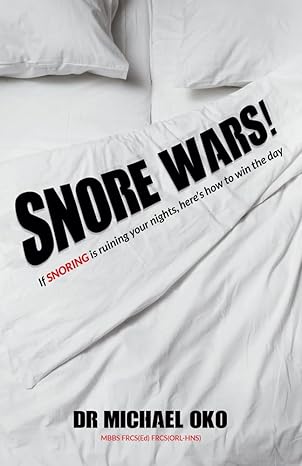
If snoring is stealing your sleep (or your partner’s) or ruining your nights? and practical tips on
Dr. Michael Oko’s Snore Wars! offers a practical guide to silencing the nightly noise and improving sleep quality. This book combines medical expertise with actionable solutions, helping readers understand the causes of snoring and how to combat them effectively.
Key Takeaways:
-
Root Causes: Explains why snoring happens—from blocked airways to lifestyle factors like alcohol or obesity.
-
Medical & Natural Remedies: Covers solutions ranging from positional therapy and mouth exercises to cpap machines and surgical options.
-
Partner-Friendly Tips: Advice for non-snorers struggling with sleep disruption.
-
Long-Term Fixes: Emphasizes sustainable lifestyle changes (diet, sleep hygiene) for lasting relief.
Why It Matters for You:
Poor sleep affects Skin health, energy, and overall wellness—topics central to GlowSkinHub.com. Dr. Oko’s insights align with our holistic approach to Beauty and well-being, proving that great Skin starts with great sleep!
Perfect for: Snorers, exhausted partners, or anyone seeking deeper, quieter rest.
- Use a humidifier in your room to fight overnight dryness.
- Avoid late-night sugar or caffeine—both spike cortisol and interfere with your sleep-Skin cycle.
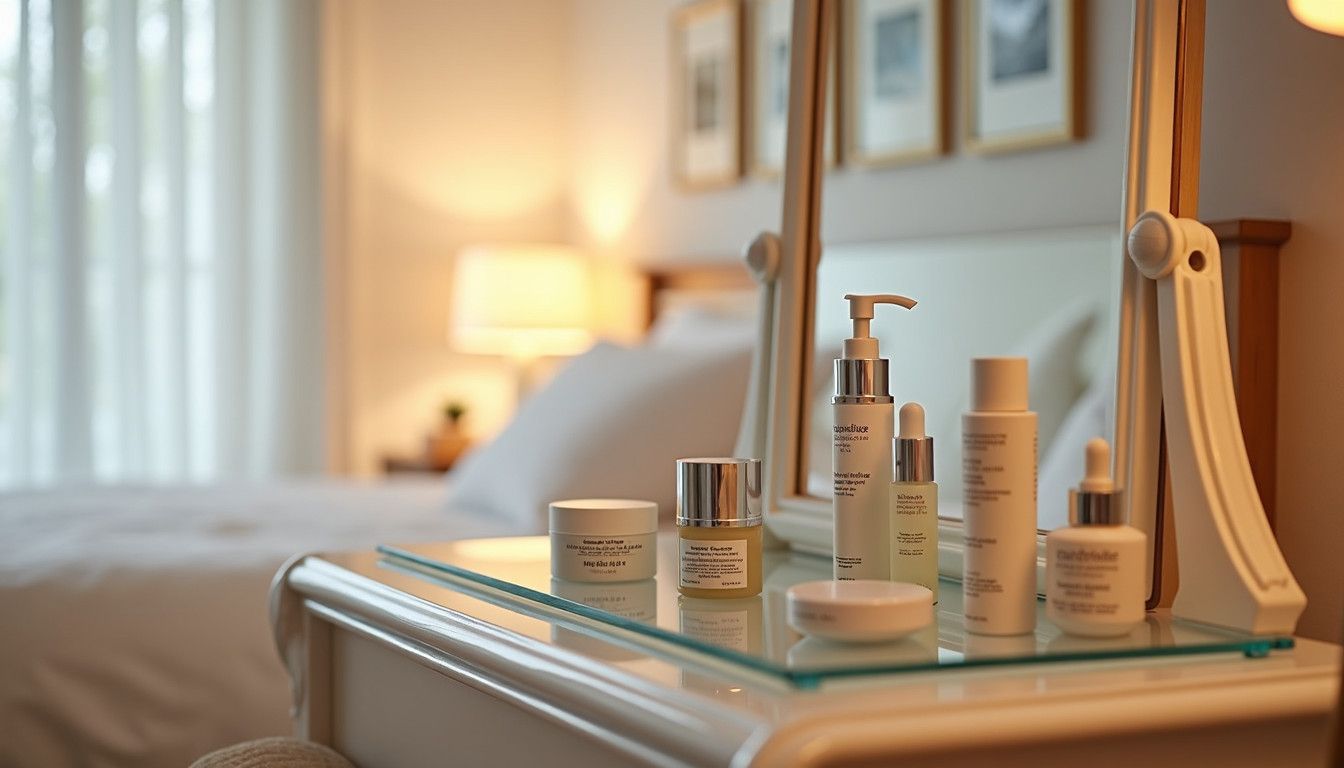
8. When to See a Specialist (Dermatologist or Sleep Doctor)?
Sometimes, self-care and lifestyle tweaks aren’t enough. If your Skin issues or sleep problems persist, it may be time to consult a professional. Chronic sleep deprivation and underlying conditions like sleep apnea can silently wreak havoc on your appearance and well-being. Here’s when to seek expert help:
Signs You Need a Dermatologist
- Persistent Acne or Inflammation: If your Skin is constantly breaking out, inflamed, or not responding to over-the-counter products, a dermatologist can help identify hormonal or stress-related causes.
- Sudden Skin Changes: Noticeable dryness, redness, or rashes that don’t go away could signal deeper health or immune issues linked to poor sleep.
- Premature Aging Signs: Fine lines, dullness, or sagging that’s progressing rapidly may benefit from prescription-strength treatments like retinoids or peptides.
- Hyperpigmentation: If dark circles or pigmentation worsens, a derm can offer brightening treatments and test for nutrient deficiencies.
Signs You Need a Sleep Doctor
- Loud Snoring or Breathing Pauses: Classic signs of sleep apnea, which reduces oxygen flow and can lead to poor Skin circulation.
- Extreme Daytime Fatigue: If you still feel exhausted despite 7–8 hours in bed, you may not be reaching restorative sleep stages.
- Chronic Insomnia or Restlessness: Difficulty falling or staying asleep long term could point to anxiety, cortisol imbalances, or neurological conditions.
Why It Matters for Your Skin
When sleep disorders go untreated, they impair tissue repair, collagen production, and Skin hydration—all of which contribute to aging and dull Skin. Professional diagnosis can help you recover both your glow and your energy.

9. Self-Care Habits That Promote Better Sleep and Radiant Skin
Improving your Skin starts with something as simple—and powerful—as your nightly routine. Adopting healthy self-care habits not only helps you fall asleep faster but also enhances your body’s natural overnight repair cycle. Here are some rituals to make part of your daily life:
🌿 Build a Nighttime Wind-Down Routine
Your body thrives on consistency. Create a calming ritual an hour before bed:
- Dim the lights to signal melatonin production.
- Avoid screens or wear blue-light blocking glasses.
- Read, journal, or take a warm bath to relax your nervous system.
This habit lowers cortisol and preps your Skin and brain for rest.
😴 Stick to a Regular Sleep Schedule
Aim for 7–9 hours of sleep nightly—and try to sleep and wake at the same time every day, even on weekends. A steady circadian rhythm boosts Skin cell regeneration and keeps hormones in balance.
💧 Hydrate Inside and Out
Drink a glass of water before bed and apply a rich, non-comedogenic moisturizer. Dehydration shows up as dull, tight Skin and fine lines. Lock in moisture while you sleep for a fresh glow in the morning.
🍵 Try Sleep-Promoting Supplements or Teas
Magnesium, L-theanine, and melatonin can aid sleep naturally. Herbal teas like chamomile or lemon balm also soothe the mind without side effects.
🧖♀️ Use Overnight Skincare Wisely
Nighttime is the perfect window for repair-focused products:
- Retinol: Boosts collagen and cell turnover.
- Peptides: Help with firmness.
- Niacinamide: Reduces inflammation and redness.
Be consistent and patient—results come with time and routine.
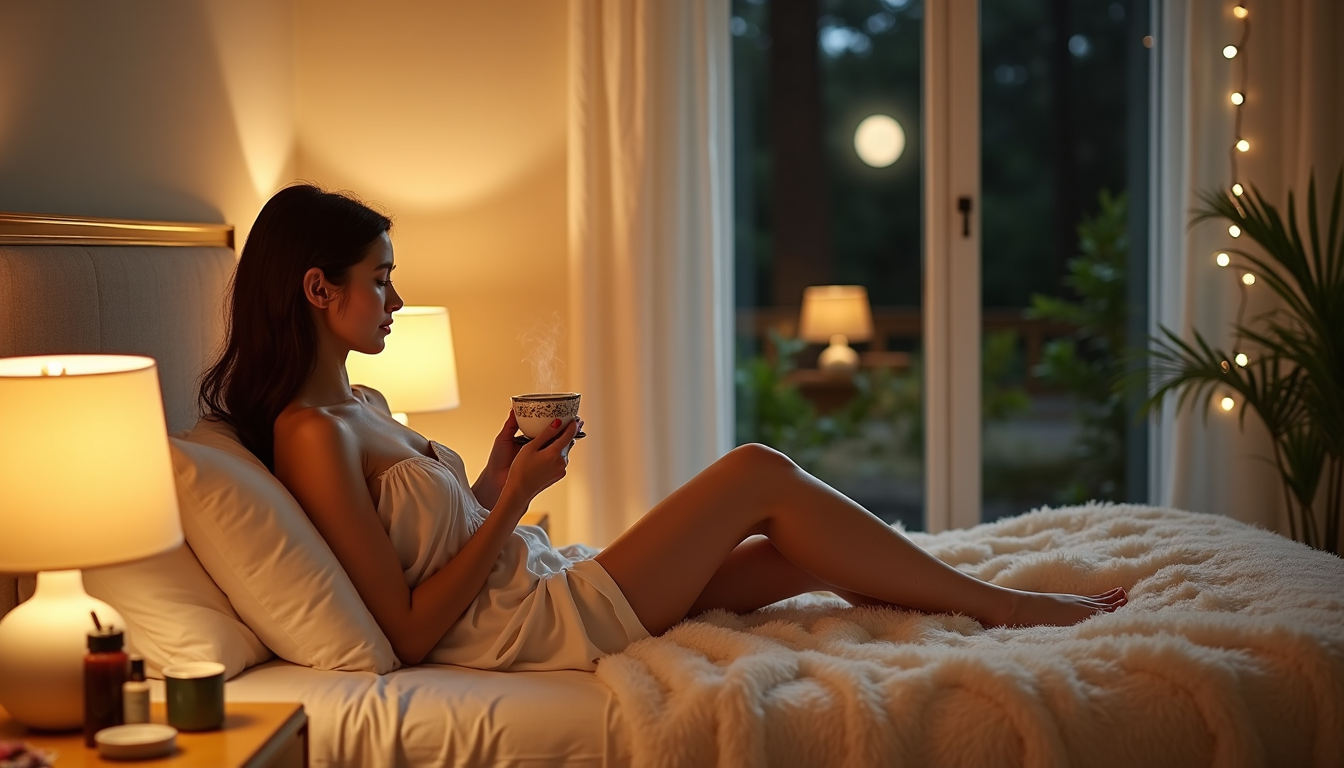
Perfect! Let’s now complete the blog with the FAQ and Conclusion sections:
🤔 FAQ: Sleep Apnea, Sleep Deprivation & Skin Health
Q1: Can sleep apnea cause long-term Skin damage?
Yes. Chronic oxygen deprivation and poor sleep from untreated sleep apnea can accelerate signs of aging like wrinkles, uneven tone, and dullness. Addressing apnea improves not just your health—but your Skin too.
Q2: How do I know if my Skin issues are linked to poor sleep?
If you’re consistently tired, have puffy eyes, dark circles, and your skincare routine isn’t helping much, lack of restorative sleep could be the hidden cause. Pay attention to sleep quality, not just duration.
Q3: Does cpap therapy improve Skin in sleep apnea patients?
Absolutely. Many users notice improved Skin texture and reduced puffiness once they start cpap treatment. Better oxygenation means your cells (including Skin cells) function better.
Q4: How many hours of sleep do I need for glowing Skin?
Most adults need 7–9 hours of sleep nightly. Skin regeneration peaks during deep sleep, so prioritize consistency and quality over just total hours.
Q5: Are there skincare products that help with sleep too?
Yes! Some overnight masks and moisturizers contain calming ingredients like lavender, chamomile, or melatonin, which help relax your senses while nourishing your Skin.
🌟 Conclusion: Breathe Better, Sleep Better, Glow Brighter
Sleep and Skin health are deeply connected—and sleep apnea and chronic sleep deprivation are often overlooked culprits behind dull, stressed, or prematurely aging Skin. By understanding the impact of disrupted sleep cycles on Skin, and by taking steps to address root causes like apnea, you’re not only investing in better sleep—you’re investing in long-term Skin radiance.
Whether it’s upgrading your sleep environment, seeking medical treatment for apnea, or adopting calming nighttime rituals, small changes can lead to noticeable improvements in both how you feel and how you look.
Because when you sleep well, it shows—in your energy, your mood, and yes, your Skin. ✨





